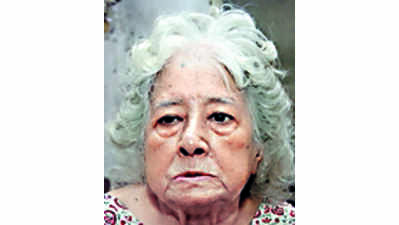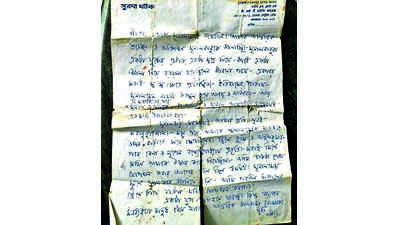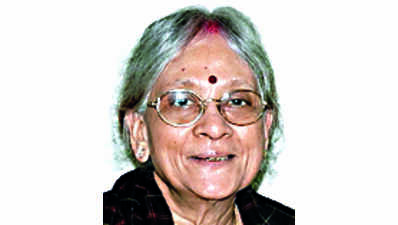- News
- City News
- kolkata News
- Ritwik wife’s letter to Mrinal’s wife remembers Sen as a friend in need
Trending
This story is from May 27, 2023
Ritwik wife’s letter to Mrinal’s wife remembers Sen as a friend in need
Remembering someone who stood by in times of need might now be a forgotten virtue but the letter is a reminder of the grace of a person who honoured it. Surama, in the letter, like a soothsayer, had predicted that post-Satyajit Ray, the names of “Mrinal-Ritwick or Ritwick-Mrinal” will be remembered by posterity. By inter-changing the order of the names, she brushed aside the comparison between the two. In effect, her letter is a celebration of the trio’s works.
A member of the Communist Party when she was in Assam, Surama was a political activist even before she met Ghatak and had also served a prison term. Theatre brought them close and Ghatak also taught her theatre though he never cast her in his films. The later years of their marriage were fraught with financial and emotional challenges. Surama had left for Santhia to teach in a school to raise her children. Much after Ghatak’s death, she published her works, ‘Shillong Jailer Dairy’, ‘Ritwik’ and ‘Padma Theke Titash’.
Sen’s son, Kunal, chanced upon Surama’s letter while going through his mother’s handbag. “Maa kept her money and keys in this bag. Since she used it regularly, the letter got tattered. But I can’t figure out when it was written,” he said.
The letter, signed off as ‘Lokkhi’ (Surama’s pet name) and written on her writing pad, mentioned the Chetla Central Road address, where she lived the last years of her life. During her multiple interactions with TOI from this address, Surama had always underlined how deeply sympathetic Sen was towards her family. “When I needed a job, both Mrinal Sen and Satyajit Ray had written recommendations,” she had told TOI.
The same thought was echoed in the letter. Surama had a first class in home science for the PG diploma course and got a job in Santhia. A strike was called just the day before her joining. In the letter, Surama remembered how Sen had called the school and told them that she would be a day late and join by noon the next day.
In 1973, Ghatak had fallen ill in Bangladesh during the shooting of ‘Titas Ekti Nadir Naam’ and then Indian Prime Minister Indira Gandhi had sent a special plane for him. It was Sen had gone to Dhaka with Surama to bring him back. And, it was Sen who had broken the news of Ghatak’s death to Surama. “I remember how he had held my hand and taken me back home from the crematorium. You were there along with Anup Kumar. Later, Bela, Nripen Bandyopadhyay and others joined. All of you had held me tide over the situation,” she wrote. Remembering those days in February 1976, Kunal said, “The family had shifted to our Motilal Nehru residence after Ritwick kaka’s demise. I was in college then. We had a small accommodation and stayed together for 10-15 days.”
The letter ends with the lines: “An era is coming to an end. But people will live on through their works.” Those who knew Surama will understand that these lines resonated with the same emotions that she felt while recalling Ghatak’s words to her: “Lokhhi, taaka ta toh thakbe na, kaajta thakbe (Lokkhi, money won’t remain. Works will.”)
Stay updated with the latest news on Times of India. Don't miss daily games like Crossword, Sudoku, and Mini Crossword.

About the Author
Priyanka DasguptaEnd of Article
FOLLOW US ON SOCIAL MEDIA
Visual Stories
Hot Picks
TOP TRENDING
Explore Every Corner
Across The Globe






